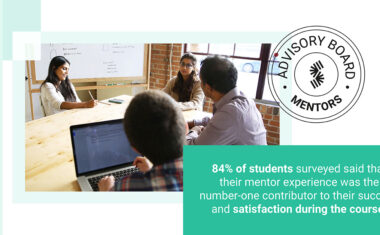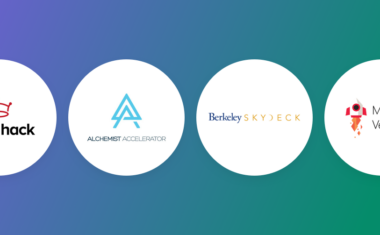Springboard Mentor Spotlight: John Newton
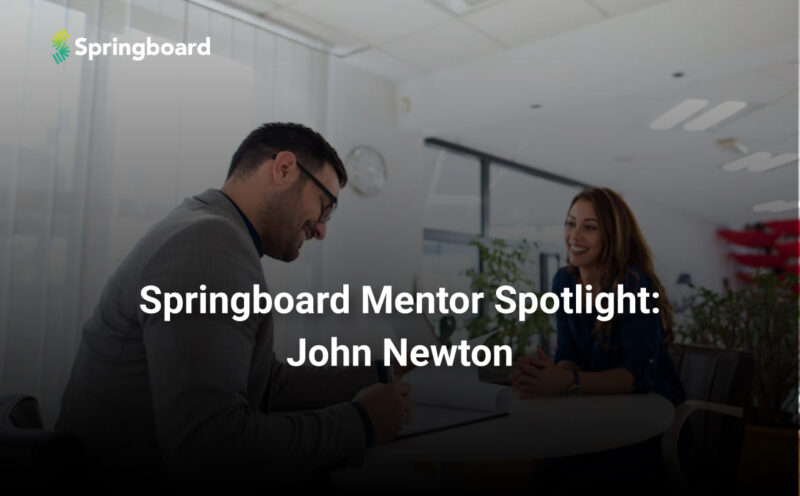
Meet John Newton, a mentor for Springboard’s Software Engineering Career Track.
John Newton has worked as a programmer for the same manufacturing company, Corning Incorporated, for over 25 years. The company manufactures fiber optic cables that transmit data to provide high-speed internet and other telecommunications services. John’s work is crucial to the operation: he writes software to test the optical fibers before they are delivered to major telco clients like Verizon and AT&T. He also works closely with engineering teams at the manufacturing plant to program computers designed to control the manufacturing process.
Contrary to popular opinion, the manufacturing industry is rife with opportunities for technologists including software engineers, data scientists, and people with expertise in Internet of Things (IoT). John’s work has taken him all over the world expanding manufacturing plants in Mexico, China, and India.
Tell me about your role as a software engineer at Corning Incorporated. What does your day to day look like?
Corning makes optical fibers for telecommunications. My first assignment at Corning was to build a brand new plant. Some of the plant equipment was written in MS-DOS and they wanted to convert it to Windows. It was definitely a hair-raising experience. Since then I’ve had the opportunity to build or expand plants in India, China and Mexico.
When you expand a manufacturing plant, what does that involve exactly?
The process involves pretty much everyone from accountants to quality engineers and product operations. It involves purchasing equipment. It means sticking to a tight schedule because you want to have the plant running by a certain date. You work with IT to purchase and install computer equipment. Then the software might need to be modified for the new plant.
The main part of your job is to perform quality assurance on the optical fiber products your company manufactures. Are there any other aspects of your job you’d like to mention?
I work with the control engineers on what’s called programmable logic controllers (PLCs). These are computers designed to control manufacturing processes such as assembly lines and robotic devices. PLCs are devices that control the assembly line. You might have seen the inside of an automobile factory on TV where the cars are coming down the assembly line and robotic arms are doing various things. That is a PLC controlling net.
You also have a visual screen called a human machine interface (HMI), that allows the operator to monitor how the assembly line is running. For example, is the line running too fast and generating too much heat? We also have control engineers that write PLC logic to control the assembly line.
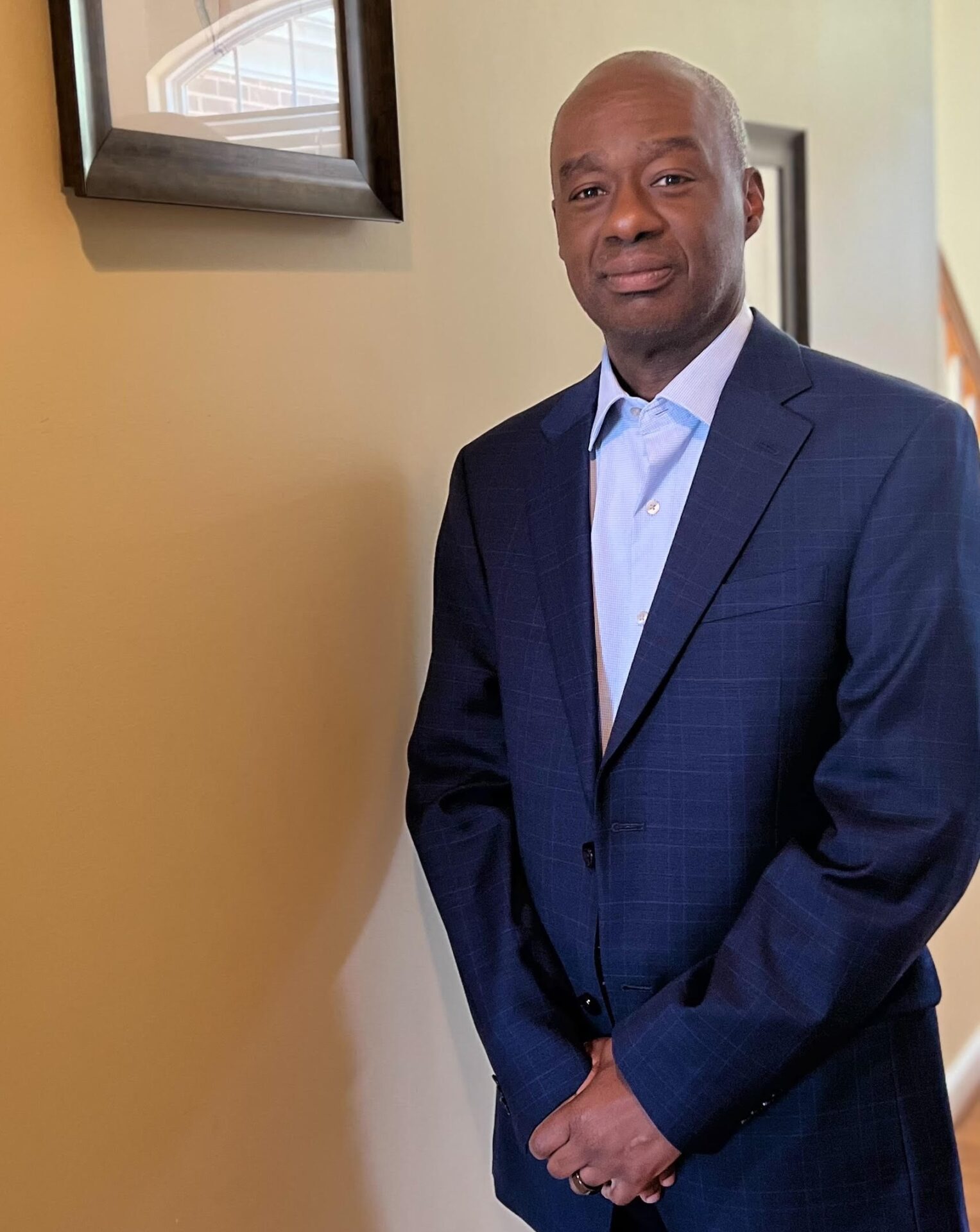
Most people are not aware that the manufacturing industry has a lot of opportunities for software engineers like yourself. What is something you would like people to know about it?
One of the things I’ve learned from working at Corning is that technology changes overnight. I always tell my mentees that software engineering is about so much more than web development. You should learn robotics and AI, or whatever catches your interest. That way, when a company is looking for a software developer with those skills, you can raise your hand.
If someone has an interest in topics other than web development, how can they pursue it further while studying at Springboard?
As you go through the course, get a feel for what you like. Once students tell me “Hey John, I really like front-end development,” or “I like full-stack development” we can discuss their options. There are lots of opportunities to write web-based code in robotics, IoT, and artificial intelligence. You might want to take another course in that field to deepen your knowledge. Then you can combine that with the software development experience you got at Springboard.
Why did you want to become a programmer in the first place?
I’m a 1980s kid. I’m the guy who carried quarters everywhere so I could play video games at the arcade. I enjoyed playing these games so I wanted to learn how to write them. In high school, a couple of my teachers were former programmers. They told us, “Hey guys, we’ll make a deal with you. You get A’s and B’s in your classes and we’ll teach you how to code.” So I did that during my junior and senior year of high school. In college, I learned how to program in Pascal.
Do you have any advice for Springboard students on how they can get exposed to different aspects of programming?
Try compiling code using different operating systems. Some of my students have a Windows 10 computer but as they get further into the course, they’ll switch over to a Linux OS. A web development project has to run on all the operating systems, so working with a different OS broadens your skillset. When I was learning how to code, I would purchase PCs and put Linux on one, then I’d get a Mac and learn how to use that.
What do you like most about being a mentor at Springboard?
I wanted to serve the digital community, but I didn’t want to teach at a college. Then I found Springboard. I get to meet people from all walks of life. Some are college students, some are transitioning to a new career. You get to walk people down this path to becoming a software developer from start to finish. It’s a joy for me to take something I’ve learned over the years and pass the torch.
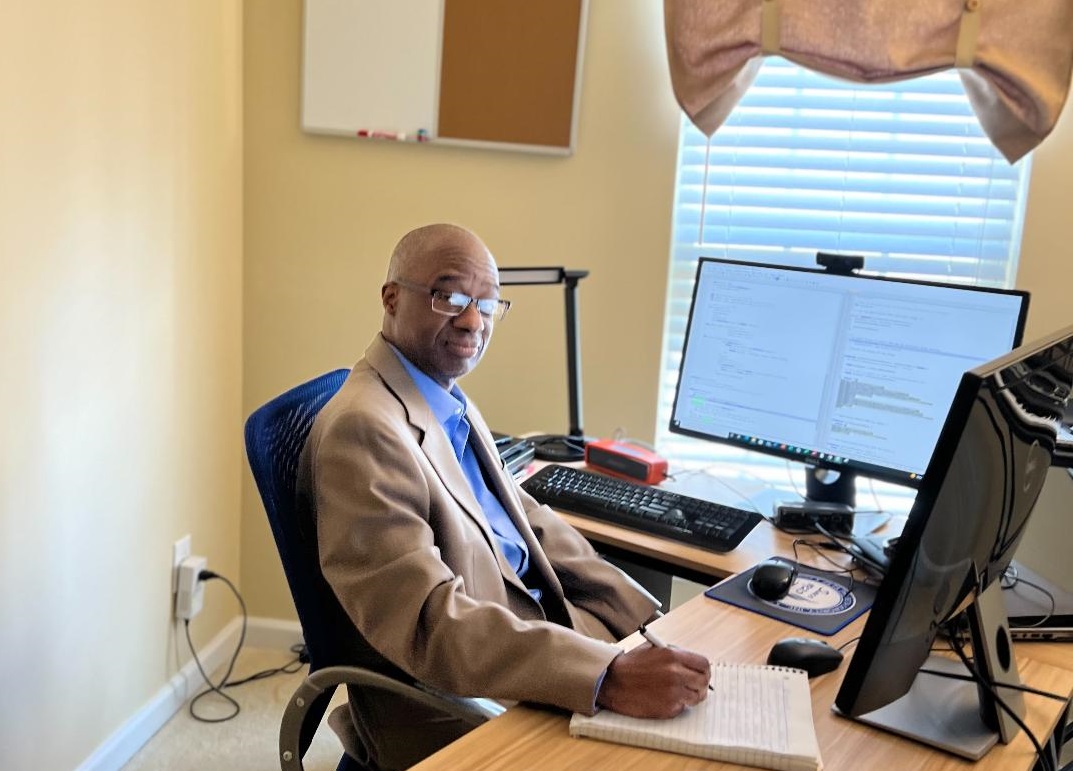
What is something you have learned from your mentees?
My mentees are very open to trying different things. They’re not afraid to do that. I learned to become a programmer through a very traditional route, but many of my mentees are switching over from non-technical careers. Hats off to them.
I also tell my mentees that software engineering is just the start. You can later decide to become a data scientist, quality analyst, or system administrator. Every job in IT involves some type of programming.
There’s a huge debate over whether a degree in computer science is still necessary to become a true engineer. Where do you fall on this matter?
Back in the day, it would take a year or more for a business idea to come to fruition. Now it ranges from several months to a couple of weeks. The digital age was accelerated further during the pandemic. Companies these days don’t care if you have a college degree as long as you know how to code. They’ll say, “This is what we need. Can you have this done within a couple days or a couple of months?” If you can do that, they don’t care where you got your education.
What is the most interesting project you’ve worked on in your career?
My most exciting project at Corning was when we built a brand new plant in India. I spent time outside of the country, met people from a different culture and became friends. I installed the plant equipment and trained them to use it. We still work together even to this day. When I was in college, I thought I would spend 30 years until retirement just sitting behind a desk, but I’ve had the opportunity to travel the world.
How has being a mentor helped with your own career development?
The students keep me on my toes. They ask me questions I would have never thought of. Then I have to go and research the answers. It keeps me young. Sometimes their questions relate to things I learned in college, so I have to look them up again. It kind of makes you feel like a kid again. So I’m engaged in learning as much as they are. They teach me while I teach them.
Is there anything else you’d like to add?
I want my students to know that the sky’s the limit. Don’t be afraid to learn and take that opportunity, because the future is digital transformation.
Want to become a mentor? Apply here!
We were founded in 2013 with the goal of helping people anywhere in the world advance their careers through affordable, mentor-led online courses. Since then, we’ve helped thousands of students across the globe grow their skills and build new and rewarding careers via a flexible, human-centric, online approach. Every learner is unique—and so are their learning needs. We believe education should prepare learners for the real world, and that working on meaningful projects under the guidance of industry experts is one of the best ways to get there. Our education model, centered around these principles, has launched students from more than 100 countries into professional success. We deliver curated, expert-developed curricula via a mentor-led approach that emphasizes hands-on learning and human interaction.
